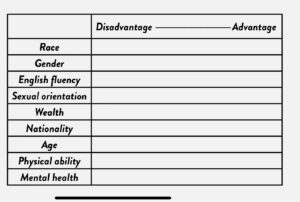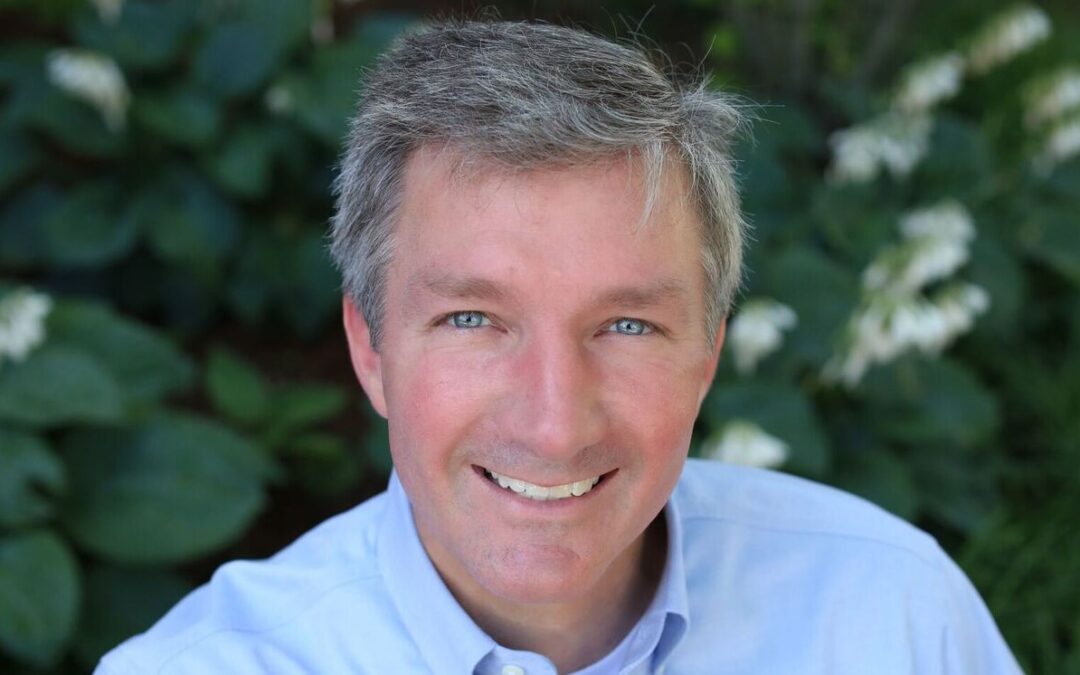 Follow Me: Biblical Practices for Faithful Living
Follow Me: Biblical Practices for Faithful Living
“Using Advantages to Overturn Inequalities”
Decatur Presbyterian Church
Mark 10:17–23; Luke 19:1-10
June 12, 2022
This morning, we have two different biblical illustrations of what can happen when a person encounters Jesus. The first person, not remembered by name, seems to have been a righteous man, a law-abiding, faithful man who happened to be quite wealthy. It seems that this man’s possessions were, for him, the one particular thing that was keeping him from living into a right relationship with God and neighbor.
The second man, remembered by name, Zaccheus, had probably not been a very righteous man. He had likely defrauded many; he had likely misused his position as a tax collector, as many did. However, upon encountering Jesus, he chose to alter his life direction and even to begin to redistribute his wealth.
Hear the Word of God, first from Mark 10:17-23.
As he was setting out on a journey, a man ran up and knelt before him, and asked him, ‘Good Teacher, what must I do to inherit eternal life?’ Jesus said to him, ‘Why do you call me good? No one is good but God alone. You know the commandments: “You shall not murder; You shall not commit adultery; You shall not steal; You shall not bear false witness; You shall not defraud; Honor your father and mother.” ’
He said to him, ‘Teacher, I have kept all these since my youth.’ Jesus, looking at him, loved him and said, ‘You lack one thing; go, sell what you own, and give the money to the poor, and you will have treasure in heaven; then come, follow me.’
When he heard this, he was shocked and went away grieving, for he had many possessions. Then Jesus looked around and said to his disciples, ‘How hard it will be for those who have wealth to enter the kingdom of God!’
Luke 19:1-10
He entered Jericho and was passing through it. A man was there named Zacchaeus; he was a chief tax-collector and was rich. He was trying to see who Jesus was, but on account of the crowd he could not, because he was short in stature.
So he ran ahead and climbed a sycamore tree to see him, because he was going to pass that way. When Jesus came to the place, he looked up and said to him, ‘Zacchaeus, hurry and come down; for I must stay at your house today.’ So he hurried down and was happy to welcome him. All who saw it began to grumble and said, ‘He has gone to be the guest of one who is a sinner.’ Zacchaeus stood there and said to the Lord, ‘Look, half of my possessions, Lord, I will give to the poor; and if I have defrauded anyone of anything, I will pay back four times as much.’
Then Jesus said to him, ‘Today salvation has come to this house, because he too is a son of Abraham. For the Son of Man came to seek out and to save the lost.’
The Word of the Lord.
This week’s Follow Me theme is: Using Advantages to Overturn Inequality. The first thing to acknowledge is that inequalities exist. Some people simply have more advantages than others.
Inequalities have always existed. Inequalities will always exist. As Jesus claimed, “the poor you will always have with you.” The questions for today are: First, do we recognize the advantages that we have? And second, are we willing to consider how we might participate in God’s coming kingdom by using those advantages to reduce or even overturn inequalities?
Do you remember what Jesus told his hometown folks when Jesus began his ministry? “I have come to bring good news to the poor and proclaim release to the captives, recovery of sight to the blind, to let the oppressed go free, to proclaim the year of the Lord’s favor.” (Luke 4:18-19)
Later he said, “If any want to become my followers, let them deny themselves and take up their cross daily and follow me. For those who want to save their life will lose it, and those who lose their life for my sake will save it. What does it profit them if they gain the whole world, but lose or forfeit themselves?” (Luke 9:23-25)
So, we couch this whole conversation about inequities in the context of Jesus’ stated purpose of his incarnation. As our Follow Me curriculum states, having advantages does not mean someone is inherently good nor that someone is inherently evil.
The advantages we have do not negate our hard work, Naming our advantages is not meant to make anyone feel guilty. We have all been dealt a hand in life. The question is “what do we do with it?” Most people have both advantages and disadvantages in their lives. Taking an honest look at our advantages helps us realize what ground we’re standing on as we work together to make the playing field more even.
Consider the box below:

On the continuum between disadvantage and advantage, where do you land for each of the characteristics listed? Of the nine categories listed, how many have been advantages for you. How many have been disadvantages in your life? I confess that, for me, all nine, in most circumstances in my life, have been an advantage. Certainly in ministry in the Presbyterian Church, my race, gender, nationality, and mental health have all been significant advantages. As you consider this list, which advantage or disadvantage has had an impact on your life compared to, say, the rest of Dekalb County?
Now, let’s try something else.
I invite you all to hold up 5 fingers and participate in a simple exercise.
If you had consistent access to healthy food growing up…raise another finger
If you had to take out loans for your education…lower a finger
If you attended a private school, college, or university…raise another finger
If you’ve ever been told you are well spoken…lower a finger.
If you feel your race and gender have adequate coverage in the media…raise a finger.
If you can show affection for our romantic partner in public without fear or ridicule or violence… raise a finger
If your parents worked nights and/or weekends to support your family…lower a finger
If you have even thought twice about calling the police when in trouble…lower a finger
If you studied the culture of your ancestors in elementary school…raise a finger
If your family ever had to move because they could not afford the rent…lower a finger
(to watch the youtube video on this exercise, see https://www.youtube.com/watch?v=m3AMhtHPKNk)
Some of us now have 10 fingers raised.
Others of us, sitting right here in the pews among us, may not have a single finger raised.
This is reality, friends. Life is not fair or equitable.
Some of us are born into some measure of privilege; others are not.
Consider this picture of reality when it comes to the advantages or disadvantages we have had from birth.

Three boys wanting to watch a ball game. Some are born with the ability to enjoy the very best seats in the house. Others will never be able to afford a ticket. Still others will not even have the mental or physical capacity to be able to work a menial job within the stadium.
There has been much conversation over the years about treating people equally. Equality means each individual or group of people is given the same resources, the same opportunities. Equal treatment for all sounds good, right?
But considering the advantages and disadvantages we are born with, equality can end up looking like this…

All three boys are given the same size box to stand upon, but one of them cannot even see over the fence.
Equity has been a buzzword in recent years, particularly when combined with diversity and inclusion. Treating people with equity is different than treating people equally. Equity recognizes that each person has different circumstances, and thus allocates the resources and opportunities needed to reach an equal outcome. Social equity takes into account systemic inequalities to ensure everyone in the community has access to the same opportunities and the same outcomes.
Equity can end up looking something like this…

The three boys all have the same outcome; each can see the ballgame, but they were not given equal resources in order to do so. Eventually, someone will ask an altogether different question. Someone, perhaps with the mind and eyes of Jesus, will overturn the whole conversation. and end up talking instead about liberation.
Liberation, at least in the example of the ballgame in the stadium, could look more like this…

There is no more obstacle to be overcome. Each boy is able to see the game without extra help.
In Deuteronomy, Chapter 15, we hear the following words of the Torah, the Law: “If there is anyone in need, a member of your community in any of your towns within the land that the Lord your God is giving you, do not be hard-hearted or tight-fisted toward your needy neighbor.
Your should rather open your hand, willingly lending enough to meet the need, whatever it may be… Give liberally and ungrudging when you do so, for on this account the Lord your God will bless you in all your work and in all that you undertake. Since there will never cease to be some in need on the earth, I therefore command you, ‘Open your hand to the poor and needy neighbor in your land.’” (15:7-11)
And earlier in Chapter 15, related to the lending to the neighbor in need, “Every seventh year you shall grant a remission of debts… if only you will obey the Lord your God by diligently observing this entire commandment that I command you today…there will be no one in need among you…” (15:1-6)
How different would the world be if enough resources were shared in order to meet the needs?
How different would the world be if debts were forgiven every seven years?
How many families would begin to thrive if their medical costs did not bankrupt them or their educational debts did not keep them from buying food and gas at the end of the month?
The rich man who went away grieving had just one thing that separated him from the kingdom of heaven.
He was already a righteous man, a good man. He had obeyed the commandments all his life. But his possessions had somehow gotten in the way of his love for God and neighbor. Jesus did not give to everyone the same instruction; he did not tell everyone to sell all you own. Jesus, loving this particular man, the text says, gave him the instruction that would liberate him. But the man did not respond; the text simply reports that he went away grieving.
Zaccheus, on the other hand, who was not so righteous, who had mostly likely taken advantage of others, who had defrauded others, said he would pay back four times those whom he had defrauded.
And he said he would give half of his possessions to the poor – half! 50%. That day, salvation came to Zaccheus’ house, and Zaccheus is forever remembered by name.
The rich young ruler is only remembered as some poor guy with a lot of money who went away grieving.
How might those of us, who have any advantage whatsoever, use those advantages to address the inequalities around us?
Frank Mastrogiacamo and Charlene Kalka are our recent newlyweds. They are both in their 70’s and have just entered a new season of life. They are both mostly retired and feel very blessed in their lives. This week, they are enjoying some time away at the beach. One way they use their own gifts and talents and yes, advantages, is to spend every Monday afternoon helping kids with their homework through an afterschool program.
Candler Broom and his family support and help run the JefJel Project in Senegal. They help provide education, healthcare and economic opportunity for otherwise very poor villagers.
Scott and Jody Overcarsh are not only very generous here at DPC, but they also visit and support an orphanage in Kenya. There, at the Kenya Project, Kenya’s poorest children receive healthcare, education and spiritual development.
Catherine Carter does something almost every day for someone in the Decatur community. Providing meals for the families at Hagar’s House down the street is only one of the many ways that Catherine uses her time and energy and resources daily for others.
Many of you volunteer regularly on behalf of our Threshold Ministry or with another of the helping agencies in town.
Many of you share your time and resources in significant ways, ways that inspire me and inspire others around you.
I would love to hear more of what you are doing to help the disadvantaged gain equity and liberation.
At Compassion Camp this week, we had dozens of little ones singing and playing and doing artwork. In each group, there were a few shepherds, one adult and a couple of teenagers. Many of the children were fairly independent and didn’t need much help going through their day. Others, because of their age or some other factor, needed significantly more attention. I was inspired by how effectively the shepherds worked with the children to ensure that everyone had a similar outcome, that every child had a welcoming, wonderful and joyous week at Compassion Camp.
What would the world be like if those of us with any advantages whatsoever made consistent efforts to ensure that everyone around us had a welcoming, wonderful and joyous week?
I imagine that the world would feel a bit more safe. I imagine that there would be a lot more laughter, like there was this week at Compassion Camp. I imagine that gun violence would decrease and poverty would diminish, and that all would have enough.
To God be the glory as we seek to address systemic inequalities.
Amen.
Rev. Dr. Todd Speed
Decatur Presbyterian CHurch
Decatur, Georgia
June 12, 2022


